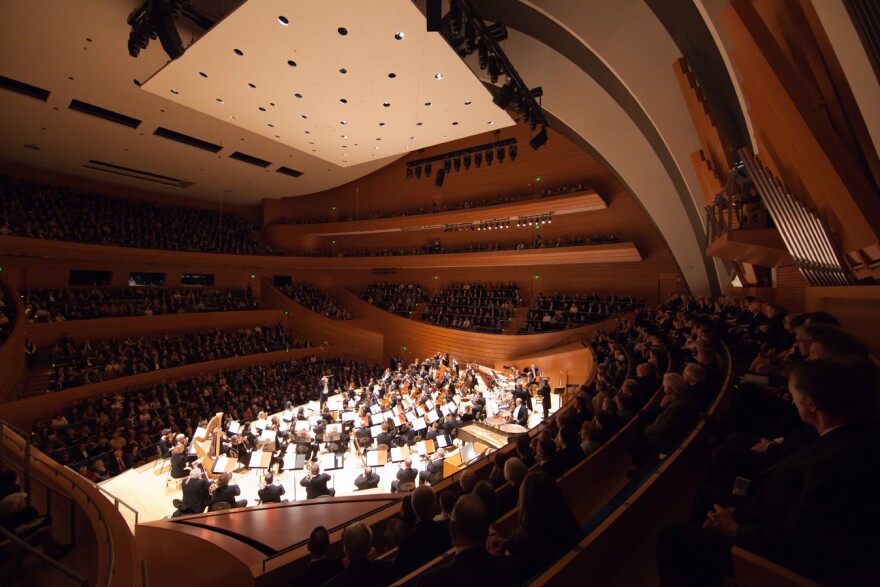The Kansas City Symphony’s Classics Uncorked series is a more informal concert experience — shorter and with a theme. This weekend’s program, called Bohemian Rhapsody, features works by Dvorák, Bizet ... and Queen.
Nick Hersh, assistant conductor at the Baltimore Symphony, and Aram Demirjian, associate conductor at the Kansas City Symphony, met a few years ago at the American Academy of Conducting in Aspen. They conducted and stood as partners for two summers in the cello section of the Conductors' Orchestra.
When Demirjian learned that Hersh had arranged the classic 1970s song for orchestra and solo viola, he decided to build a program around it.
Hersh's arrangement of Queen's "Bohemian Rhapsody" became a bit of a hit on YouTube:
Interview Highlights: Nick Hersh and Aram Demirjian
On why the song lends itself to orchestration
Nick: It has three distinct sections, almost like a classical movement of a classical work ... where you have an opening bit, a middle bit and then a reprise of the opening. I think Freddie Mercury [of Queen] who wrote the original song even described the middle section as what you might call an opera section. It basically involved Queen doing a lot of riffing.
On a solo for viola
Nick: It tends to be underrepresented as a solo instrument. I was happy to see a nice little outpouring of comments from violists all around, amateur and professional. They were thrilled to see something popular written for the viola, I think.
Aram: The viola also has a lot of qualities similar to the human voice in terms of its timbre and in terms of its expressive quality...
On 'Bohemian Rhapsody' capturing the imagination
Aram: There are multiple definitions to each word. There's Bohemian, the location in Czech Republic. There is the idea of bohemian, in terms of the artist's life, the wandering artist, which lends itself very well to music. And then there's the idea of rhapsody, this sense of excess, but also this sense of almost capriciousness and improvisation.
I thought there was so much potential.
On the role of a young conductor
Aram: I think classical music is a universal art, no matter what level of exposure that you've had to it. Classical music deals in some of the most common aspects of the human experience. And so I think that there is a place for everybody in classical music. It's just our responsibility as stewards of classical music to provide the right windows into music for people.
The responsibilities that we have as performers, in that regard, I think, are greater than ever because education in classical music, at the grade school levels, at the young levels, is not as much of a guarantee.
Nick: It's all about the way you contextualize classical music ... it's all about the way you frame it, creating programs like this, and having the chance for audience members to have more of a personal interaction with the orchestra and the performers — that's absolutely vital to sustaining our art and keeping our artform relevant in the 21st century.
Kansas City Symphony presents Queen’s 'Bohemian Rhapsody,' as well as works by Dvorák, Bizet, and Smetana, as part of its Classics Uncorked series, Friday, Sept. 5, at 7 p.m. at the Kauffman Center for the Performing Arts. A glass of champagne and wine is included. 816-471-0400.




